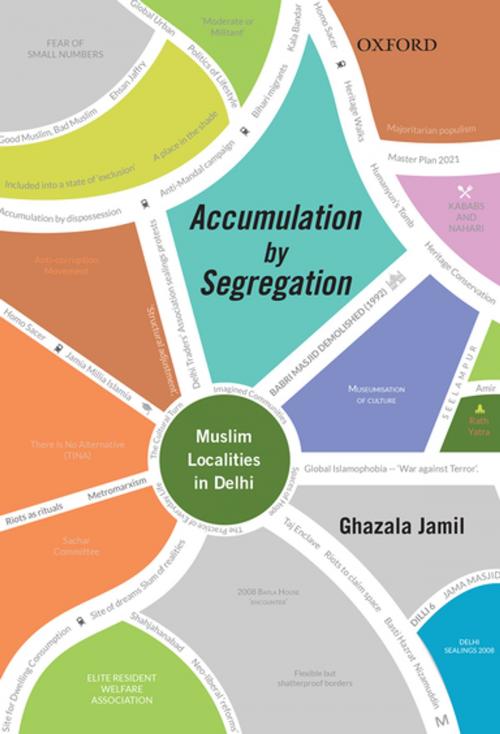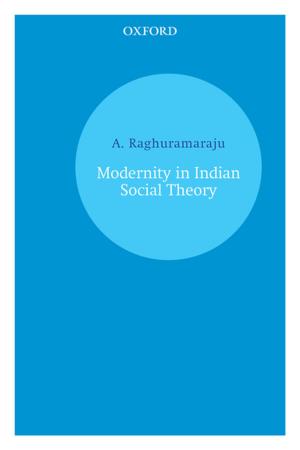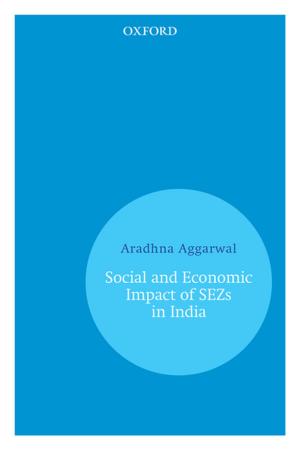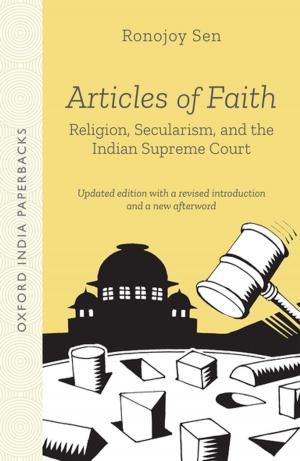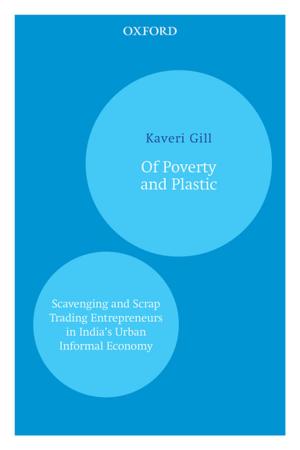Accumulation by Segregation
Muslim Localities in Delhi
Nonfiction, Social & Cultural Studies, Political Science, Politics, History & Theory, International, Social Science| Author: | Ghazala Jamil | ISBN: | 9780199091485 |
| Publisher: | OUP India | Publication: | August 9, 2017 |
| Imprint: | OUP India | Language: | English |
| Author: | Ghazala Jamil |
| ISBN: | 9780199091485 |
| Publisher: | OUP India |
| Publication: | August 9, 2017 |
| Imprint: | OUP India |
| Language: | English |
This work explores the processes of creation and articulation of social identities of Muslims in Delhi. Mapping the landscape of discrimination in Delhi’s neighbourhoods, Jamil tries to see how such fractured geographies are created. We come across people whose sense of belonging to each other is complex, and subject to forces such as regional and class identities instead of an ubiquitous ‘Muslimness’. Segregation in an urban space is produced, as Jamil argues, not only by communal conflict and threat of violence but also maintained and strengthened by processes of capitalist globalization. Through case studies of five localities, which present a historical continuity in the narrative of Delhi’s Muslims, the book presents compelling evidence of market and governance processes that aid accumulation by segregation. It offers an ‘against the grain’ reading of quotidian practices of residents within such boundaries such that a counternarrative of resistance and hope may emerge—one that may allow for re-imagining alternatives.
This work explores the processes of creation and articulation of social identities of Muslims in Delhi. Mapping the landscape of discrimination in Delhi’s neighbourhoods, Jamil tries to see how such fractured geographies are created. We come across people whose sense of belonging to each other is complex, and subject to forces such as regional and class identities instead of an ubiquitous ‘Muslimness’. Segregation in an urban space is produced, as Jamil argues, not only by communal conflict and threat of violence but also maintained and strengthened by processes of capitalist globalization. Through case studies of five localities, which present a historical continuity in the narrative of Delhi’s Muslims, the book presents compelling evidence of market and governance processes that aid accumulation by segregation. It offers an ‘against the grain’ reading of quotidian practices of residents within such boundaries such that a counternarrative of resistance and hope may emerge—one that may allow for re-imagining alternatives.
